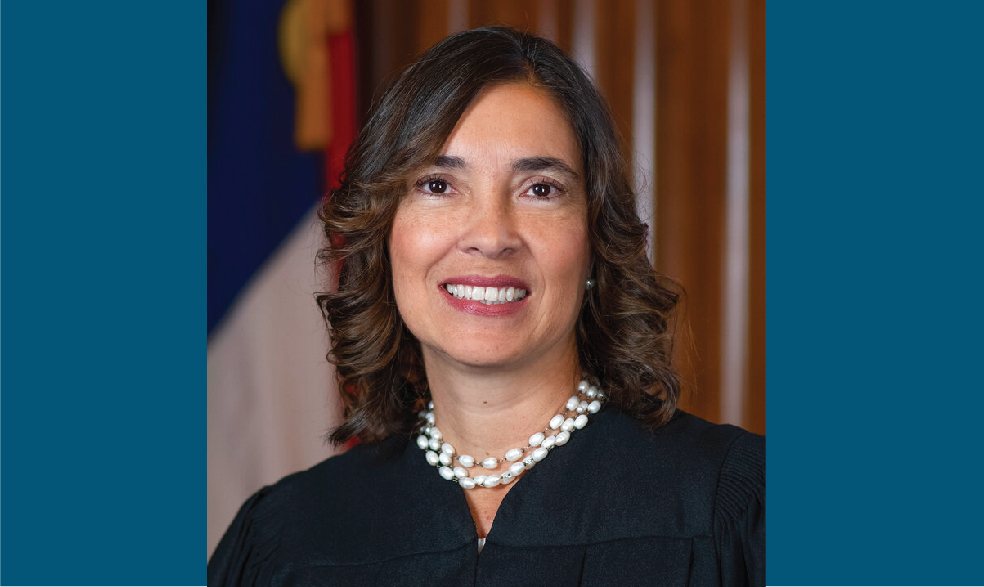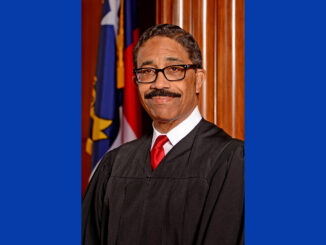
RALEIGH — On Aug. 23, legislative leaders filed a motion to dismiss certain plaintiffs from the decades-old Leandro education funding case that has made its way to the N.C. Supreme Court.
The motion, filed by attorney Matthew Tilley of Womble Bond Dickson LLP on behalf of lawmakers, argues that the claims of the Plaintiff-Intervenors, also called the Penn-Intervenors, are “not at issue in this appeal.”
Furthermore, the motion asserts the plaintiffs can’t be considered “a party aggrieved” and that their appeal should be dismissed for “lack of appellate jurisdiction” because the only claim they have made “was severed from the proceedings that led to the orders now on appeal.”
The Legislative-Intervenors request also asks the court to “Strike Plaintiff-Intervenors Opening, Response, and Reply briefs filed on 1 July 2022, 1 August 2022, and 12 August 2022, respectively.”
On Aug. 26, attorneys for the Plaintiff-Intervenors filed a response urging the court to deny the lawmakers’ motion to dismiss. As of noon on Aug. 30, the N.C. Supreme Court had not published a decision on the matter.
The state’s high court will begin hearing oral arguments in the case on Aug. 31.
The filing by lawmakers follows orders by Associate Justices Phil Berger, Jr. and Anita Earls, indicating they will not recuse themselves from the case. Berger’s order was a simple paragraph, whereas Earls’ went on for 21 pages. Earls was asked to recuse herself for her past legal representation of the families from the Charlotte-Mecklenburg Public Schools district.
“Plaintiff-Intervenors’ claims are entirely unrelated to the issues involved in this appeal,” the motion argues in the first summary point. “The current proceeding concerns trial court orders that directed the State to implement and fund a sweeping, eight-year ‘Comprehensive Remedial Plan’ (‘CRP’) that would rework much of the North Carolina public school system, among other things.”
“The trial court ordered the CRP to supposedly “remedy” what it believed was a statewide failure to provide children with their constitutional right to a sound basic education,” the motion reads. “But, as has been made clear by papers recently added to the record on appeal, Plaintiff-Intervenors were only granted a limited intervention in this matter to pursue claims related to the conditions in a specific subset of the Charlotte-Mecklenburg School district (“CMS”).”
The citation attached to the first point in the opening summary is labeled Exhibit A and specifical tags Supreme Court Justice Anita Earls’ recusal response order as supporting the motion to dismiss.
“The trial court’s 19 August 2005 Order granting Plaintiff-Intervenors limited intervention in this matter was not included in the record on appeal prepared by DOJ and the Plaintiffs,” according to the citation. “Justice Earls, however, retrieved the Intervention Order from the files of the Wake County Superior Court and attached it as an exhibit to her Order last week. For ease of reference, Legislative Intervenors have attached a copy of the Order to this motion.”
Point two of the motion’s summary underscored Earls’ own recusal order supported dismissal.
“Justice Earls held that, although she signed Plaintiff-Intervenors’ initial complaint, she did not need to recuse herself because ‘the facts and claims at issue in the Intervening Complaint — which largely concerned student assignment policies in CMS — are entirely unrelated to the questions presently before this Court,’” according to the motion. “In addition, Justice Earls introduced an August 2005 order from the trial court — which had not previously been made part of the record on appeal — that clarified that Plaintiff-Intervenors were only permitted to intervene for the limited purpose of pursuing their claim related to the conditions in CMS.”
The motion’s conclusion also takes aim at Earls, stating that by allowing the Plaintiff-Intervenors to remain a party to the appeal “risks the appearance that the Court is granting favorable treatment to one of the Justice’s former clients.”
In a statement about the dismissal motion, North Carolina House Speaker Tim Moore (R-Kings Mountain) said, “Justice Earls and the Plaintiff-Intervenors simply cannot have it both ways. The bottom line is that either her former clients should be dismissed from this case, or Justice Earls should recuse herself. Anything less is an affront to our judicial system.”
According to the North Carolina Code of Judicial Conduct rule 3(c)(1)(b), a judge is required to disqualify themselves from presiding over a case if they had previously participated in that case as a lawyer.

